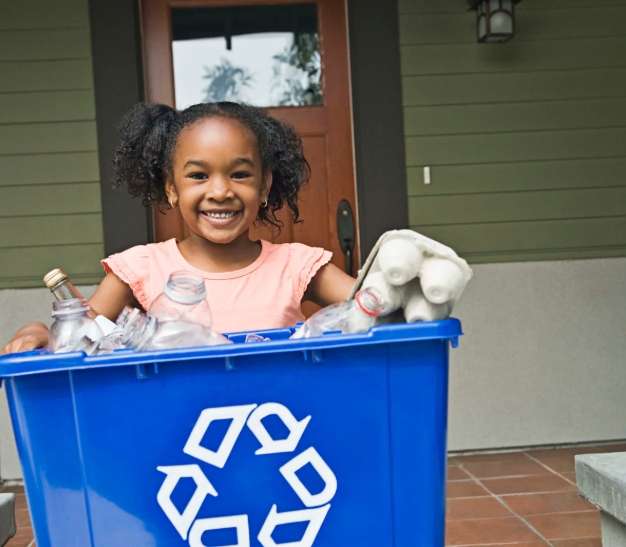Eastern Caribbean Initiative Targets Plastic Waste Reduction Through Recycling.
Recycling is not merely a trend but a necessary practice for environmental sustainability, especially crucial for Small Island Developing States (SIDS) like those in the Organisation of Eastern Caribbean States (OECS). These island nations are particularly vulnerable to the detrimental effects of plastic waste, impacting not only their pristine environments but also their economies and public health. Instilling recycling habits in children from a young age is paramount, as it cultivates responsible environmental stewardship that will carry into adulthood and contribute to a more sustainable future. The Recycle OECS Project, recognizing the urgency of this issue, has outlined key strategies to bolster recycling efforts and create a comprehensive, sustainable waste management plan for the region. These strategies focus on implementing effective policies, securing reliable funding, and fostering robust public-private partnerships.
A cornerstone of the project’s recommendations involves enacting and enforcing effective legislation. Deposit-refund systems, proven successful globally, offer a compelling incentive for consumers to return plastic beverage containers, thereby increasing collection rates and reducing environmental litter. This mechanism involves a small deposit added to the purchase price of a beverage, which is refunded upon return of the empty container. Such a system not only encourages responsible disposal but also provides a valuable stream of recyclable materials. Furthermore, establishing concrete recycling targets for both government entities and private businesses can drive participation and accountability. Harmonizing these efforts through a unified recycling law across all OECS nations would streamline operations, reduce confusion, and facilitate inter-island collaboration. This unified approach would also simplify the regulatory landscape for businesses operating across the region, encouraging investment in recycling infrastructure and technologies.
Securing consistent and adequate funding is essential for the long-term success of any recycling initiative. The project highlights the innovative approach adopted in Dominica, where waste management fees are integrated into utility bills. This model ensures a steady revenue stream dedicated to waste management services and could be replicated across the OECS. Further funding opportunities can be explored through environmental taxes levied on products that generate significant waste, as well as through incentives for businesses that invest in recycling infrastructure and processes. Seeking international grants from organizations like the Global Environment Facility (GEF) and the European Union can supplement local funding and provide access to cutting-edge recycling technologies and best practices. This diversified funding approach can ensure the financial sustainability of recycling programs and promote their long-term effectiveness.
The private sector plays a pivotal role in expanding and optimizing recycling efforts. Successful public-private partnerships demonstrate the potential for businesses to become leaders in waste management. The establishment of regional recycling centers, jointly funded by public and private entities, can significantly reduce operational costs and improve overall efficiency by leveraging economies of scale. These centers can serve as hubs for collecting, sorting, and processing recyclable materials, providing a centralized and streamlined system for waste management. Furthermore, businesses can stimulate demand for recycled materials by incorporating them into their products and packaging. This creates a closed-loop system, reducing reliance on virgin materials and minimizing the environmental impact of production.
The Recycle OECS Project serves as a powerful example of how well-designed recycling programs can yield substantial positive impacts for SIDS. It has demonstrated the potential for creating a more circular economy, reducing plastic waste, and promoting environmental sustainability. The project’s success provides a blueprint for other SIDS and coastal communities grappling with similar challenges. By replicating and scaling this model across the Caribbean region, there’s a significant opportunity to mitigate ocean pollution, protect fragile ecosystems, and enhance climate resilience. These islands are particularly vulnerable to the impacts of climate change, including rising sea levels and extreme weather events. Effective waste management, including robust recycling programs, is crucial for mitigating these risks and building more resilient communities.
Ultimately, tackling the pervasive problem of plastic waste requires a shared vision and collaborative action. Building upon the successes of the Recycle OECS Project, the region must embrace bold policy changes, explore innovative funding solutions, and strengthen public-private partnerships. These combined efforts will pave the way for a cleaner, healthier, and more sustainable future for the OECS and provide a valuable model for other island nations striving to achieve similar environmental goals. By prioritizing recycling and responsible waste management, the OECS can safeguard its natural resources, protect its vibrant tourism industry, and ensure a more sustainable and prosperous future for generations to come. The commitment to recycling is not simply an environmental imperative but also an investment in the long-term economic and social well-being of the region.
Share this content:












Post Comment